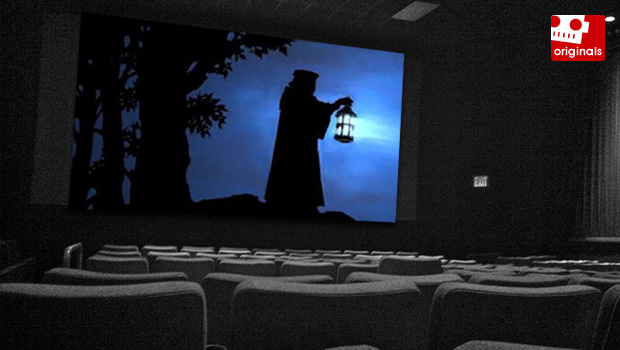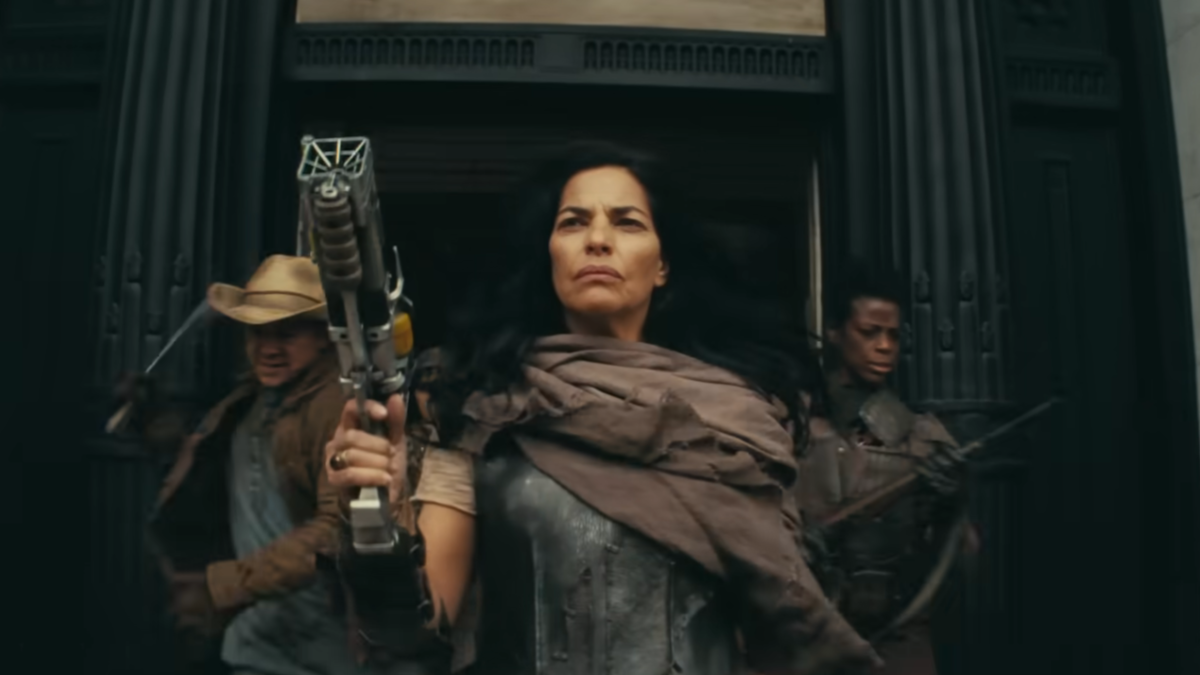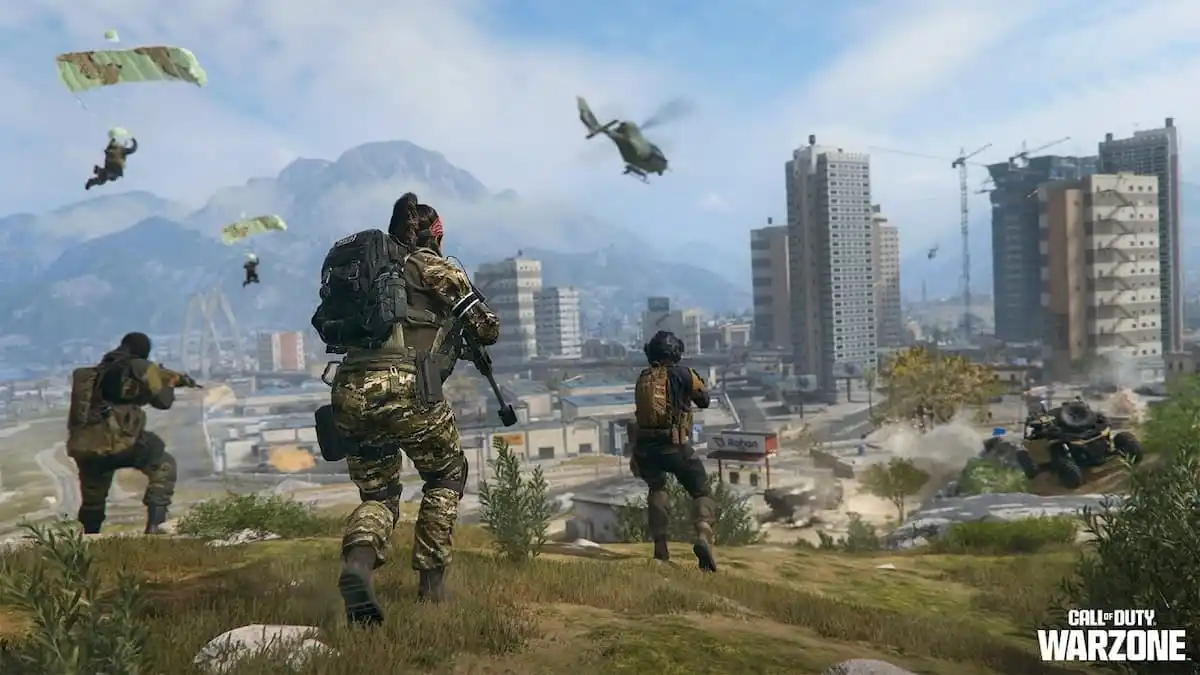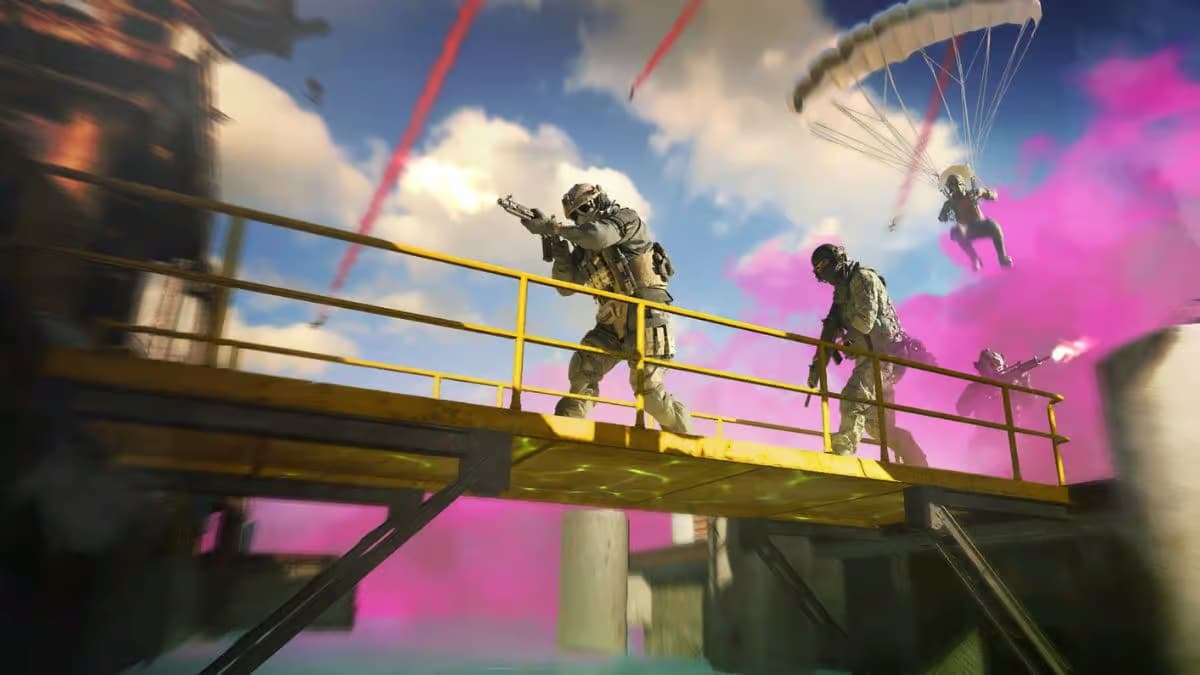Last week, a Darksiders II developer posted comments on Twitter about being left out of the credits despite working on the game. Some joined his side, some ridiculed his outburst, but most ignored the issue altogether. Does the troubling topic not warrant our attention? Who better to answer that question than Andy Modrovich: industry veteran, ex-Vigil Games employee, and the latest victim of the increasingly common industry practice of leaving staff out of game credits. This is his story.
One thing more than anything else struck me when I first read the discussion over the Darksiders II credits: the feeling that we’ve been here before.
The feeling that an uncomfortable truth about the industry, commonly known and accepted in game development circles as Just The Way Things Are, had been revealed to a surprised outside world. It was the same way I felt after the EA Spouse letter went viral, in which the fiancee of an EA game developer detailed the abusive culture of overtime at the company. I remember being inundated by emails and phone calls from family and friends who had read the letter, wanting to know if that kind of thing really went on, and had I ever experienced anything like that, and how could people do that to other people? Of course; yes; and I don’t know, I answered again and again.
I was surprised that they were surprised; somehow I thought these things were common knowledge. But then, why would they be when so few are willing to discuss them publicly?

And now here we are again, only this time the issue is the game industry’s crediting practices. Seeing the heated reaction to Xander Davis’ story convinced me it’s not that no one cares about this issue, it’s simply that few outside the industry really know much about it. Consider this my small attempt to help change that.
I started in the industry as an entry-level programmer in 2000, straight out of college. Since then I’ve worked for several different studios and shipped a number of games. After a couple of cross-country moves, I eventually settled in Austin, Texas in the summer of 2005. I joined Vigil Games partway through development on the original Darksiders and ended up working there as a senior gameplay programmer for about three years. After helping ship Darksiders, I went on to work on Darksiders II for about 14 months before I left the company for a different studio. My time did not overlap with Xander’s, and therefore I cannot speak to any of his allegations. In any case, I believe all the drama surrounding his account of his time there, and what did or did not happen, is a distraction. It only serves to obscure the larger issue, one where the facts are beyond dispute: that quite a lot of people worked for quite a long time on a game and were not credited. I am one of them.
For what it’s worth, this is hardly a problem that’s unique to Vigil; in fact, it’s depressingly common. The issue of crediting (or the lack thereof) is almost as old as the game industry itself. It was, famously, Atari’s refusal to credit its developers that drove the creator of the landmark Atari 2600 game Adventure to write the first-ever video game Easter egg in 1979 — a hidden room with “Created by Warren Robinett” displayed in the middle. Well, I guess that’s one way to solve the problem: write your own credits. I wish I could say we’ve come a long way in the past 30 years, but it was just last year that some former members of Team Bondi felt strongly enough about their lack of proper crediting on L.A. Noire that they launched a website with their own version of the game’s credits. Warren would be proud.

After 12 years in the game industry, I’ve come to believe there are almost as many policies toward crediting as there are game studios. Since we have no trade union like Hollywood does, there are literally no rules whatsoever about who ends up in a credits file and who doesn’t. Some companies have very liberal policies, where anyone who works on the project for even one day gets at least a special thanks. At others, you do not make it into the credits at all unless you are there on the day the game ships, regardless of how long you worked on the game. Vigil’s policy was more case-by-case. From what I saw on Darksiders 1, if you left under unpleasant circumstances, you would likely be dropped from the credits, while if you parted on amicable terms, you might still be kept in. In what I consider to be the most disturbing part of his public statement, David Adams implies that it’s perfectly okay to leave out anyone who left the company for any reason besides a mass layoff. I don’t know how many rank-and-file game developers would agree with that.
These types of policies, together with the growing tendency to include a huge number of people who had (at best) a tangential role in the making of the game, lead to situations where (and I’m not exaggerating here) the accountants, PR people, lawyers, and sales staff at the corporate office end up in the credits while key production employees do not.
I witnessed a situation at one company where one of our top artists was cut out of the credits for a game, despite having worked on it from the very beginning all the way to the end. After we had locked our content in preparation for submission (meaning the artists were literally forbidden from making any further changes to their work) he announced he was leaving the studio for another opportunity. The day after his announcement, his title was stripped and his name was moved all the way to the Special Thanks section at the very end of the credits file. After the endless parade of corporate brand managers and marketing executives, after the HR people at the outsourcing studios, after the voice-over talent for the French localization. He did what you’re supposed to do: he did quality work and saw the game through to completion. Yet because he left before the game discs were actually pressed, he was essentially erased from the credits.

So what’s behind all this? Why does a studio remove someone from a game’s credits, and why do developers put up with it? Most importantly, why do credits matter?
I don’t have a good answer to the first question, considering it costs the studio nothing — literally nothing — to keep a name in the credits file. In light of the ad-hoc nature of so many companies’ crediting policies, I wouldn’t be at all surprised to find that many of them simply haven’t thought very hard about the why. Among those that can give a coherent explanation, I imagine they’d say that keeping departed employees in the credits isn’t fair to the devs that stuck it out all the way through the (typically nightmarish) end of the project, with all its attendant late nights and stress. This might be a valid argument for crediting those employees differently (e.g., “Additional Design” instead of just “Design”), but not for removing them entirely.
Another reason, which studios are less likely to vocalize, is that de-crediting people the minute they leave provides a good incentive for them to stay through to the very end of the project. However, I suspect that at too many places, the real answer comes down to a simple desire to punish. It’s really the only legal way studio executives have to get back at an employee they feel has “wronged” them or put the project in a tough spot by leaving early. Yes, it’s petty and unprofessional, but human nature is what it is.
As for why we all just suck it up and accept these minor injustices, to some extent it’s the same reason we accept the major injustices of perpetual crunch and exploitative working conditions: fear of retaliation. No one wants to be branded a troublemaker or a malcontent. People are scared of losing their jobs. They have children and mortgages. Even in the very best of times, the tremendous volatility of the game industry means that nobody’s job is truly “safe” for any length of time. And brother, it ain’t the best of times. So why risk complaining?

Nor, it must be said, is it the case that all developers actually care about credits. There’s a fair chunk of the workforce that doesn’t see how it matters who makes it into the credits for a given game. After all, there are no residuals or royalties or copyrights tied to them as there are in other industries. They know they worked on that game, their friends and family know they worked on it, and most importantly, everybody else in the industry knows they worked on it. Or at least, can easily verify that they did. We all know that when it’s time to look for another job, the recruiter we end up talking to is going to be able to call up a friend of a friend who worked with us at Defunct Company X and find out everything they need to know. The industry is small like that, a byproduct of the continual churn of hirings and layoffs and cross-country moves and re-hirings. When no one in the industry is more than two degrees of Kevin Bacon away from anyone else, who needs a credits file?
But the fact is that credits do matter. Because while a game is still relatively recent, it may be easy to find somebody who remembers that you worked on it. But when the game becomes 10, 20, 30 years old? The studio itself may be long since dead and its records lost, and finding people who can reliably confirm your contribution may become difficult or impossible. And the converse situation may be even worse. If there’s no definitive way to tell if someone worked on a particular game, what’s to stop an unscrupulous person from padding their resume with old games they never so much as touched? Modern game studios, especially the ones that produce AAA games, employ dozens or even hundreds of people. That plus the constant trickle of arrivals and departures means that before long, no one’s memory will be reliable. Hell, I can’t even remember the names of people I worked with just a few years ago. In a very real way, our history as game developers is slowly disappearing, one game at a time.
But beyond any of the practical concerns, or the high-minded talk of posterity, the best reason to insist on proper crediting is simple human decency, respect, and love of the truth. There’s been a lot of back-and-forth about what kind of a guy Xander Davis is and how good his work was, and whether he therefore “deserves” to be credited for Darksiders II. This debate misses the point entirely. Because it doesn’t matter whether you’re a nice guy or a jerk, or whether your work is good or bad, or whether you quit or got laid off or were fired for cause. You put in work on a game, you belong in the credits, period. The credits file is not a record of who’s a Swell Dude, or whose contributions were super awesome. It is a record of who worked on the game, and the management of a studio should not be in the business of deciding whether anyone’s contribution was “good enough” to merit their inclusion, or whether they left the company for an “acceptable” reason.

So where do we go from here? How do we make things better? Again, I wish I had a good answer for that. The only thing that will fix the crediting issue once and for all is unionization, but for reasons I don’t fully understand a lot of folks in the game industry are hostile to the idea. Failing that, we may simply have to do our best to foster a consensus — within the industry and without — that arbitrarily denying people their recognition is unacceptable. Public awareness and social pressure can work wonders; just ask the employees now receiving overtime pay as a result of the EA Spouse incident.
Whatever we decide to do and however we go about it, we owe it to ourselves not to let this issue get stuffed back in the closet with the other game industry skeletons. The Way Things Are is wrong, and the time for quietly accepting it is over.
If you’d like to reach Andy, you can send him an email at [email protected]
[image]




